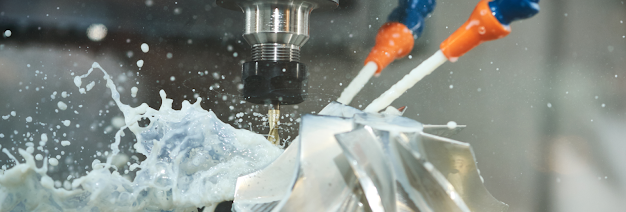How Bacteria Contamination Can Affect Your Industrial Facility
Did you know that bacteria and other microorganisms can breed in industrial fluids and can clog filters, reduce fluid function, emanate bad smell, and pose severe health risks?
Biosan Laboratories, an environmental microbiology laboratory specializing in bacteria tests and developing bacteria test kits since 1973, has seen how bacterial growth in industrial fluids can reduce production and increase costs.
When left untreated, industrial fluids are contaminated with bacteria and pathogens that can lead to pH drift, split emulsions, decrease in cooling, lubricity, and other fluid performance as well as pose several health and environmental risks.
More than 300 types of bacteria are responsible for contaminating industrial fluids and coolants, but there are five bacteria that are ubiquitous in industrial settings:
• Bacillus: These are Gram-positive bacteria, which are unable to produce endotoxins. The genus includes B. cereus and B. subtilis, which are the most common microorganisms in industrial fluids. The former can cause food poisoning, while the latter is a non-pathogenic bacteria.
• Brevundimonas: These are endotoxins-producing Gram-negative bacteria. The genus has B. diminuta, the most commonly occurring bacteria in industrial fluids.
• Mycobacteria: These include M. avium, M. immunogenum, and M. chelonae, which are opportunistic microorganisms and responsible for causing hypersensitivity pneumonitis among the workers who are exposed to industrial fluids aerosols. The symptoms can range from breathlessness, fever, dry cough, and muscle problems, and repeated exposure can result in chronic diseases.
• Pseudomonas: More than 50 per cent of bacteria that grow in industrial fluids belong to this genus. These include P. stutzeri, P. putida, P. aeruginosa, P. pseudoalcaligenes, and P. oleovorans. Except P. putida, all others can cause infections in people with weak immunity.
• Stenotrophomonas: These are endotoxins-producing Gram-negative bacteria and S. maltophilia is one of the most commonly occurring bacteria from this genus that is responsible for fatal infections in people with considerably weak immunity.
How bacteria can affect industrial fluids?
Apart from being contaminants, the mere presence of different types of bacteria can impair the performance of industrial fluids. They can actively break down the fluids and attack the emulsifiers thereby making them less stable and effective. Also, some bacteria cause biofilm and slime, which ends up clogging filters and causing corrosion. This results in decreased tool performance, lower tool life, a slump in output, and increased rejection rates.
Furthermore, bacterial growth in your industrial fluids can also cause health hazards and environmental safety issues, which can worsen at the time of the COVID-19 pandemic.
Contamination of water and environment
Apart from affecting your industrial fluids, bacteria can also contaminate water and the environment near your facility. This can result in environmental degradation, which can cause the Environmental Protection Agency to intervene and slap hefty fines after detecting disease-causing bacteria and pathogens. A comprehensive water and environment test can identify the presence of harmful bacteria and eliminate them before they cause environmental and health hazards.
Bacteria tests to eliminate bacterial growth
A bacteria test in your industrial facility can help you determine what types of bacteria are present in the industrial fluids and can help you take the corrective course of action. At Biosan Laboratories, we offer antimicrobial testing of industrial fluids, paints, plastics, inks, textiles, and construction materials.
Our microbial laboratory can select the right test method for your project and design test protocols for your specific requirements. We have more than 40 years of experience in testing biocides, antimicrobials, and preservatives, and our team of experts specialize in AATCC, ASTM, ISO, and JIS standard antimicrobial test methods.
Apart from conducting antimicrobial tests, we also manufacture several bacteria test kits to help you monitor the presence of bacteria in industrial fluids and cooling towers.







Comments
Post a Comment